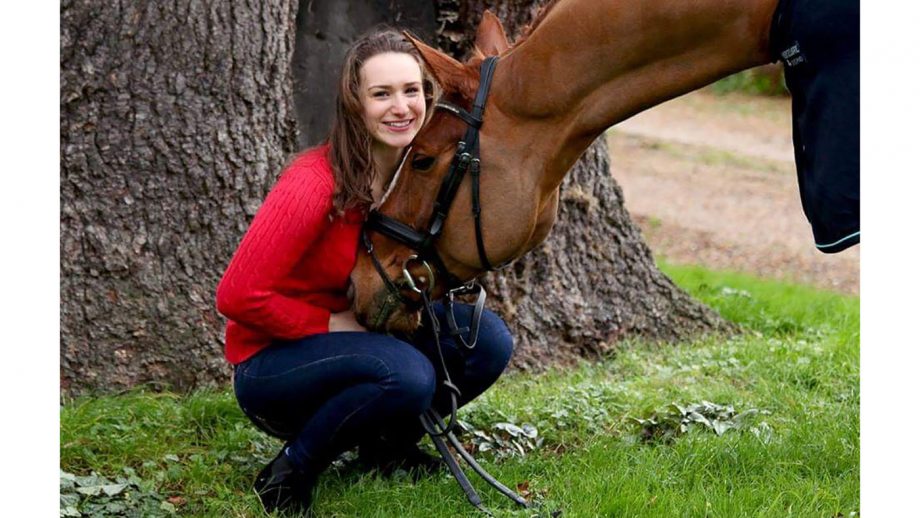As national anti-bullying week comes to a close, more needs to be done to combat the problem across the equestrian world
Calls have been made for greater awareness of the various forms of bullying across the equestrian world, plus the need for individuals to take action when they see it.
As national anti-bullying week (11 to 15 November) comes to a close, individuals have agreed bullying is becoming more widespread in equestrian sport through the negative use of social media.
Eventer Jake Tarrant, who launched the “Good Sport Initiative” that aims to promote positivity and uses the hashtag #buddydontbully, told H&H some individuals are not aware of what bullying is.
“Bullying is very directed, it’s derogatory and often someone making themselves feel better by putting down another person. Some people don’t realise they’re doing it, they might snigger or make backhanded comments, but that gradually undermines a person’s ability to make a decision without second guessing themselves all the time,” he said.
“At competitions you see bullying where individuals believe they are better than others and people should get out of their way. Whether you’re at your first ever show or you’re an Olympic rider, there should be a level playing field across the venue. No one is better than anyone else.
“Venues suffer backlash when they are trying to run a competition for 200 people and you have one person who chooses to be difficult; that one person will be the one who goes on social media to be derogatory or degrading about the people who have tried to do their best for them.”
Mr Tarrant said social media has allowed people to say what they want without thinking about consequences.
“People tend to forget that a screen in front of them is not a barrier that stops people being hurt,” he said. “Until more people can understand that it’s going to be very hard to stamp bullying out.
“If someone sees bullying happening, or is affected, they need to remember the problem is not with the person being bullied — it’s the person doing it. People should speak to like-minded individuals or a professional they trust, such as their coach, yard owner, farrier or physio — whoever they feel comfortable with, about it.”
British dressage volunteer Sara Green wrote a social media post calling out bullying after she saw a venue being “berated” online.
“People leapt on a thread having a go at a venue, but what people don’t realise is a venue is not a ‘thing’ – it’s people,” she told H&H. “Some people say this isn’t really bullying but it is; it might not be name-calling but it’s insidious negativity that goes beyond a straightforward complaint. No one is trying to stop someone making a complaint, but it needs to be factual, non-exaggerated, and non-emotional.
“This lower level bullying is a big problem, it’s nit picking and wearing people down. People have a right to express their feelings, but they have a responsibility to understand the effect they are going to have on people.”
Ms Green said she has seen bullying from both competitors and venue owners across disciplines.
“It can go two ways; I have seen venue owners be extremely rude competitors, and I’ve seen competitors being rude to staff at venues. I have seen staff in tears because someone is being so rude to them,” she said.
“We need to call it out and say that’s not acceptable — it’s the only way.”
Livery yard owner and coach Fiona Mackinnon, who almost gave up horses as a teenager as a result of bullying, told H&H it has become worse with the use of social media.
“Before bullying might have been people in groups excluding an individual or being verbally nasty to them, but now you have keyboard warriors and a whole different level of bullying,” she said.
“Hurtful things can be said and then people believe it; that’s bullying. Since social media has been around there’s been more of it because it’s such an accessible world to everyone.”
Ms Mackinnon would like to see more support for individuals being affected by bullying.
“For a lot of people horses are a social and leisure activity and there isn’t always that support network, a lot of people are on their own. There’s not really an infrastructure to help people.”
A spokesman for the British Equestrian Federation told H&H bullying has “no place” in sport.
“Everyone has the right to be treated with respect and to be able to enjoy the sport they love without fear of being bullied. Anti-bullying week helps raise awareness of something that can have a devastating impact on those who are victims of such behaviour,” said the spokesman.
How to deal with bullying
If you are being bullied, the Anti-Bullying Alliance recommends that you:
- tell someone you trust
- keep a record of what’s happening
- don’t retaliate
- surround yourself with people who make you feel good about yourself
- don’t blame yourself — it is not your fault
- be proud of who you are
You might also be interested in…

‘I don’t want anyone else to suffer’: teenage rider says #GoodbyeBullies in new campaign
‘We can’t change the world but we’re trying to do things in a different way’

‘How my horse helped me beat school bullies’
A film-maker is basing a piece of work on her own experience of beating the bullies

‘Not on my yard’: anti-bullying campaign to be launched
Organisers want to 'change attitudes' within the equestrian world, and raise awareness of bullying in person and online

Claire Drey-Brown’s we need to talk blog: ‘It isn’t your job to stop the hate, it’s the job of those who hate’
’It is not you who needs to change what you post, it is those hateful people who comment horrible things


